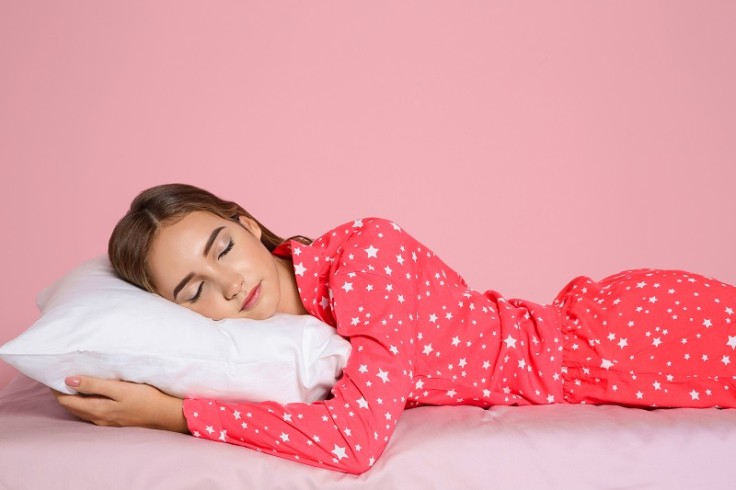
Australian teenagers are not typically getting the 8-10 hours of sleep they need every night, according to Victoria's Better Health Channel. This sleep deprived condition can contribute to a broad variety of alarming problems for them, including weight gain, dangerous behaviours, mental health issues, academic problems and general crankiness. If your teens are among the affected group of sleep-deprived Australian adolescents, the following ideas can help you empower them to get more sleep:
1. Make Sure They Exercise
Researchers have found that sufficient exercise promotes efficient sleep and improved sleep duration in teenagers. However, it is widely believed that evening exercise can energise teenagers to the point that it hinders their sleep.
As it turns out, most evening exercise is likely to be beneficial for sleep rather than detrimental to it. The exception to this, according to recent research, is when a person performs vigorous athletic training within an hour of bedtime. Such intense training can, indeed, interfere with sleep.
So be sure to allow your teens to get out of the house and do things like play ball with their friends. But if your teens are hardcore athletes, do be sure to discourage them from participating in intensive exercise right before bedtime.
2. Curb Their Screen Time When It's Almost Bedtime
Multiple studies and sources warn us that our teens are likely to sacrifice sleep so they can squeeze in more screen time. Teens frequently suffer from a fear of missing out. This fear can compel them to stay up late, checking social media via their phones and tablets to see what their friends are doing.
Encourage your teens to turn off the TV and to put their phones and tablets away at least an hour before bed time. This is good advice in theory, but it may be a challenge to actually accomplish results. If you experience resistance from your teens, it could be beneficial to talk with their friends' parents about the situation. If the entire group can be persuaded to agree that they will stop using their devices an hour before bed time, the fear of missing out will diminish for all of them.
3. Limit Their Afternoon Caffeine Consumption
Caffeine is remarkable for its ability to energise. The downside is that caffeine is also easily able to wreak havoc on a person's ability to fall asleep. Its effects linger in the body for longer than you'd suspect. For this reason, you'll want to ensure that your teens avoid consuming energy drinks, chocolate, tea and soft drinks starting at noon - because any caffeine consumed later in the day is likely to interfere with their sleep.
4. Make Sure Their Beds and Bedding Are Comfortable
It's hard to get to sleep and remain asleep in an uncomfortable bed. If your teens aren't sleeping well, it's possible that an uncomfortable sleeping environment could be the reason. In that case, it's worth performing an assessment of their beds and bedding.
If your teens are still sleeping in their childhood beds, you'll want to evaluate whether those beds have been outgrown. A large teen sleeping in a too-small bed is likely to result in sleepless nights and heaps of discomfort. If your teens' beds are too small, it's time to upgrade.
Even if the beds are of sufficient size, the mattresses may be too lumpy or saggy for providing a restful sleep experience. You may wish to climb into each of your teenagers' bed yourself and determine whether their mattresses could be problematic.
A mattress that is more than 8 years old is likely to be in need of replacement, according to Healthline.com. The experts at Ecosa suggest a viable alternative to mattress replacement; they point out that a memory foam mattress topper can extend the life of a sagging or uncomfortable mattress.
Hot nighttime temperatures can also contribute to sleepless nights for teenagers. Ensure your teen's room is as cool as possible during heat waves. Provide air conditioning or a fan if possible. Remove heavy blankets from their beds, and ensure they have sheets made from natural fibres such as cotton or bamboo.
5. Provide a Healthy Diet for Them
Scientists have determined that there is a clear correlation between healthy eating and healthy sleep. At this point, they are unsure about whether it's a causal relationship. It is possible that eating a healthy diet might actually contribute to better sleep; but, it is also possible that people who eat a healthy diet are just health conscious in general, and are coincidentally more likely to also get a good night's sleep. More research is needed before we'll have a thorough understanding of the relationship between healthy diet and great sleep.
The main takeaway: It's worthwhile to provide a healthy diet for your teens. It might contribute to better sleep for them - but, even if it doesn't, eating a healthy diet is never a bad thing. Since it can't hurt and is likely to help, it's definitely worth doing.
Following these 5 suggestions can significantly increase the likelihood that your teenagers will be able to get sufficient sleep at night. Adequate sleep will help them to be healthier and to perform better in virtually every aspect of their lives.